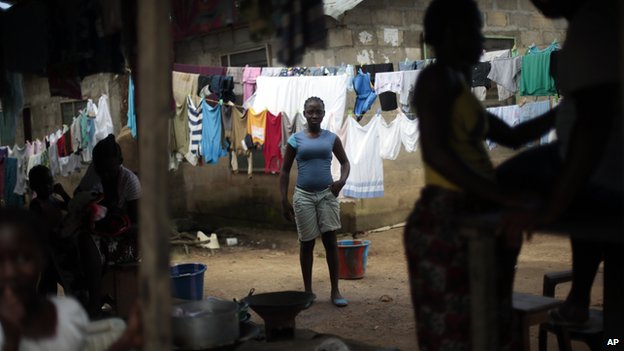The death toll from the Ebola outbreak in West Africa has passed 3,000, the World Health Organization (WHO) says.
The latest figures indicate that more than 6,500 people are believed to have been infected in the region.
Liberia is the worst affected country, having recorded around 1,830 deaths linked to the latest outbreak.
The outbreak is the world’s most deadly – US President Barack Obama has called it a “threat to global security”.
Some studies have warned that the numbers of infected could rise to more than 20,000 by early November.

The report said two new areas, in Guinea and Liberia, have recorded their first confirmed cases of Ebola in the last seven days.
It also highlights the risk of infection for health workers trying to stem the outbreak.
It says 375 workers are known to have been infected, and that 211 have so far died from the virus.
The deaths and sickness have made it even more difficult for the already weak healthcare systems in the affected countries to cope with the outbreak.
There is a severe shortage of hospital beds, especially in Liberia.
The US is sending some 3,000 troops to help Liberia tackle the disease, and set up emergency medical facilities.
Ebola virus disease (EVD)

- Symptoms include high fever, bleeding and central nervous system damage
- Spread by body fluids, such as blood and saliva
- Fatality rate can reach 90% – but current outbreak has mortality rate of about 70%
- Incubation period is two to 21 days
- There is no proven vaccine or cure
- Supportive care such as rehydrating patients who have diarrhoea and vomiting can help recovery
- Fruit bats, a delicacy for some West Africans, are considered to be virus’s natural host
Ebola virus: Busting the myths
Sierra Leone last weekend enforced a three-day curfew in an attempt to quell the outbreak in the country.
During the curfew more than a million households were surveyed and 130 new cases discovered, the authorities say.
On Wednesday, Sierra Leone extended the quarantine area to three new districts, meaning more than a third of the country’s six million people cannot move freely.
Some 600 people have died in Sierra Leone and a similar number in Guinea, where the outbreak was first confirmed in March.
Nigeria and Senegal, two other West Africa countries that have also been affected by the outbreak, have not recorded any new cases or deaths in the last few weeks, the latest WHO report says.
At the United Nations General Assembly in New York on Thursday, US President Obama called for more urgent action in the response to the outbreak.
“There is still a significant gap between where we are and where we need to be,” he said.
Source: BBC


